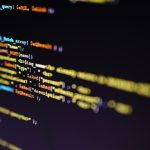The United Nations has officially adopted a new cybercrime convention aimed at strengthening global efforts against malicious hacking. This development introduces significant implications for security researchers and ethical hackers, raising questions about the balance between combating cyber threats and protecting legitimate security activities. As nations prepare to implement the treaty, the cybersecurity community is closely monitoring its potential impact on ethical hacking practices worldwide.
Previous discussions on international cybercrime laws have often highlighted the necessity of cooperation among nations to effectively address cyber threats. However, the current treaty introduces provisions that may inadvertently hinder the very researchers tasked with identifying and mitigating these threats. The contrast between enhancing security and imposing restrictive regulations is becoming a focal point of debate within the cybersecurity sector.
What Are the Treaty’s Implications for Security Research?
The treaty includes broad language that could criminalize activities performed by security researchers. By mandating the criminalization of unauthorized access to computer systems, the convention does not differentiate between malicious hackers and ethical researchers conducting security assessments.
How Might Nations Implement the Convention?
Countries with less developed cybercrime laws may adopt regulations that mirror the treaty’s language, potentially using them to suppress and censor security researchers. This approach could lead to increased legal risks for researchers engaged in good-faith security activities essential for cybersecurity.
What Steps Can the U.S. Take to Protect Ethical Hacking?
It is crucial for the United States to collaborate with other nations to ensure that protections for security research are incorporated into national laws. The U.S. Department of Justice has acknowledged the importance of security research and is updating its Vulnerability Disclosure Framework to further protect researchers.
Ilona Cohen, the chief legal and policy officer at HackerOne, stated,
“The broad provisions of the UN treaty pose a significant threat to the integrity of security research.”
This sentiment underscores the urgency for the U.S. and its allies to advocate for clearer distinctions between malicious activities and ethical research within the treaty’s framework.
Conclusion
The adoption of the UN cybercrime convention marks a pivotal moment in international cybersecurity policy. While the treaty aims to unify global efforts against cybercrime, its vague provisions may inadvertently undermine essential security research. To safeguard the contributions of ethical hackers, it is imperative that nations, led by the United States, work collaboratively to refine the treaty’s implementation, ensuring that legal protections for good-faith research are firmly established. This balance is crucial for maintaining robust cybersecurity defenses and fostering an environment where security researchers can operate without undue legal risks.










